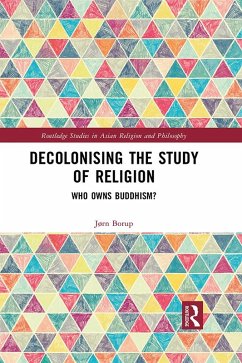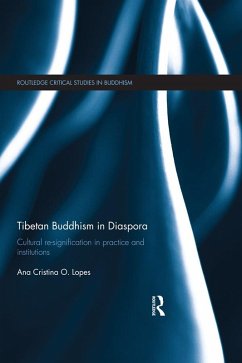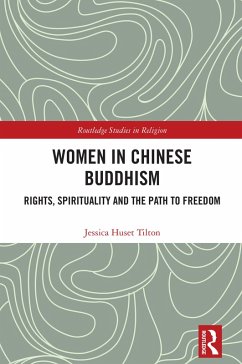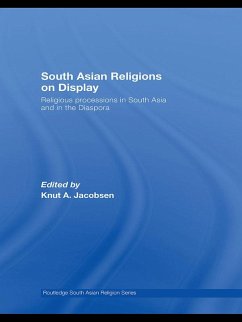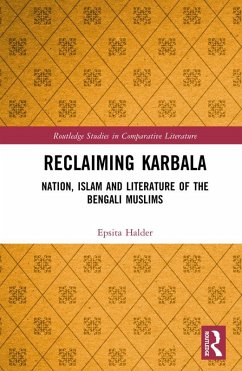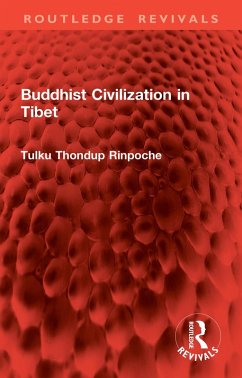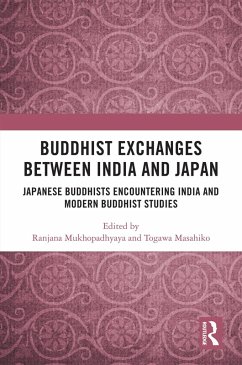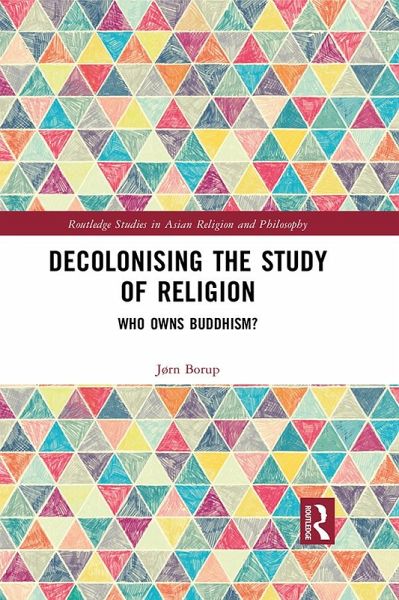
Decolonising the Study of Religion (eBook, ePUB)
Who Owns Buddhism?
Versandkostenfrei!
Sofort per Download lieferbar
42,95 €
inkl. MwSt.
Weitere Ausgaben:

PAYBACK Punkte
21 °P sammeln!
Decolonising the Study of Religion analyses historical and contemporary discussions in the study of religion and Buddhism and critically investigates representations, possibilities, and challenges of a decolonial approach, addressing the important question: who owns Buddhism?The monograph offers a case-based perspective with which to examine the general study of religion, where new challenges require reflection and prospects for new directions. It focuses on Buddhism, one religion which has been studied in the West for centuries. Building on postcolonial theories and supplemented with a critic...
Decolonising the Study of Religion analyses historical and contemporary discussions in the study of religion and Buddhism and critically investigates representations, possibilities, and challenges of a decolonial approach, addressing the important question: who owns Buddhism?
The monograph offers a case-based perspective with which to examine the general study of religion, where new challenges require reflection and prospects for new directions. It focuses on Buddhism, one religion which has been studied in the West for centuries. Building on postcolonial theories and supplemented with a critical analysis of identity and postsecular engagement, the book offers new possibilities and challenges to the study of religion. It critically investigates decolonisation in the study of religion, subscribing to a third way between 'objectivist' and 'subjectivist' positions.
Analysing the postcolonial and decolonial critique of the study of religion, with a particular focus on Buddhist studies in the West and in Japan, this book will be of interest to researchers in the field of Religious Studies, Buddhism, Japanese religions, anthropology, Asian Studies and those interested in religion and decolonisation.
The monograph offers a case-based perspective with which to examine the general study of religion, where new challenges require reflection and prospects for new directions. It focuses on Buddhism, one religion which has been studied in the West for centuries. Building on postcolonial theories and supplemented with a critical analysis of identity and postsecular engagement, the book offers new possibilities and challenges to the study of religion. It critically investigates decolonisation in the study of religion, subscribing to a third way between 'objectivist' and 'subjectivist' positions.
Analysing the postcolonial and decolonial critique of the study of religion, with a particular focus on Buddhist studies in the West and in Japan, this book will be of interest to researchers in the field of Religious Studies, Buddhism, Japanese religions, anthropology, Asian Studies and those interested in religion and decolonisation.
Dieser Download kann aus rechtlichen Gründen nur mit Rechnungsadresse in A, B, BG, CY, CZ, D, DK, EW, E, FIN, F, GR, HR, H, IRL, I, LT, L, LR, M, NL, PL, P, R, S, SLO, SK ausgeliefert werden.




